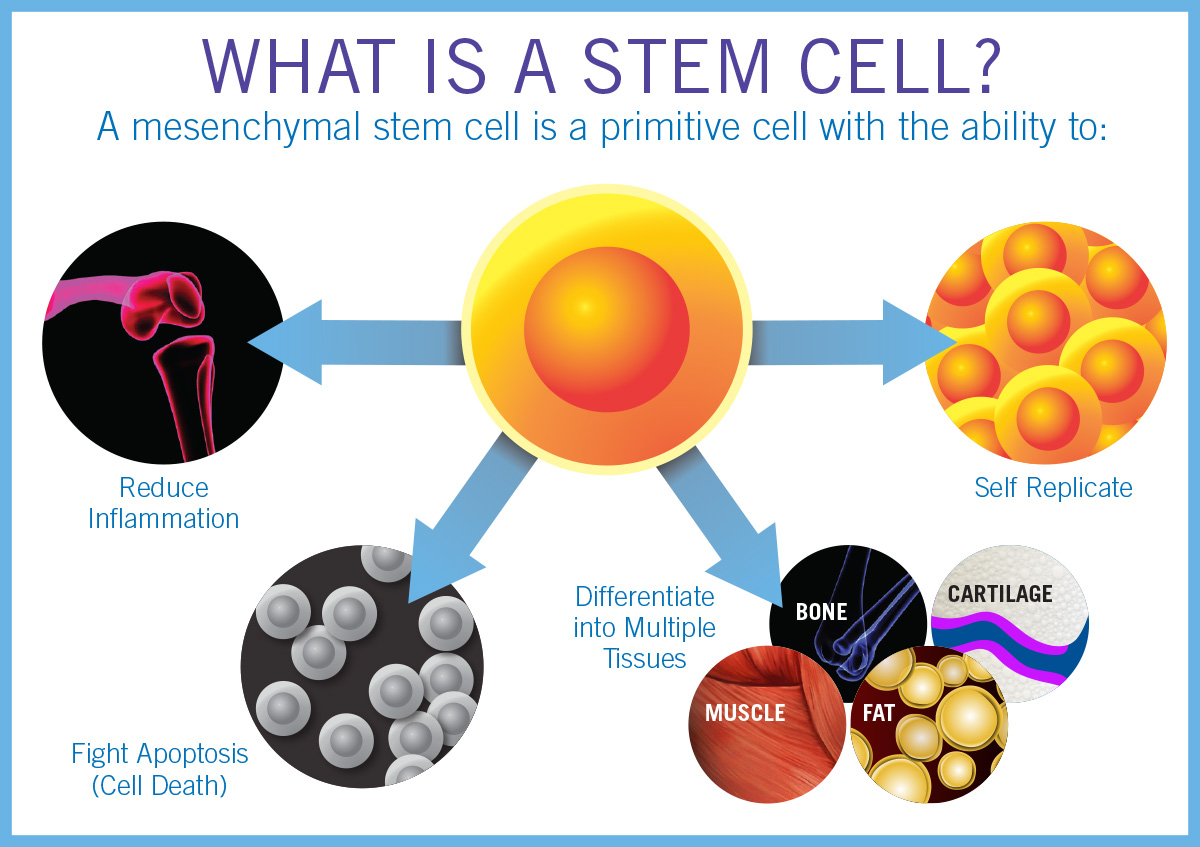Mesenchymal stromal cell (MSC) therapy helps slow the progression of Multiple Sclerosis (MS).
It addresses immune system problems and repairs nervous system damage, making it an excellent option for treating multiple sclerosis.
In this article, we’ll explore how the therapy works and provide all the information we have on this revolutionary treatment for MS patients.
Multiple Sclerosis (MS): How to Recognize Symptoms and Face the Challenges
Multiple Sclerosis (MS) is a chronic autoimmune disorder. It affects the central nervous system because the immune system attacks the nerve fibres.
This results in a range of neurological symptoms:
- Fatigue
- Motor Control Issues
- Sensory Symptoms
- Visual Disturbances
- Cognitive Impairments
- Emotional Changes
MS can drastically affect the quality of life. Understanding what treatment is available and how it can help can make a world of difference.
MSC Therapy in MS: Understanding the Mechanisms
Mesenchymal stromal cell (MSC) therapy is able to regulate the immune response and help cells regenerate in the nervous system:
Immunomodulation
- MSCs exert powerful anti-inflammatory effects.
- They secrete bioactive molecules which suppress the attack on the immune system.
Neuroprotection
- MSCs can promote neuroprotection.
- They release substances that help heal damaged cells.
Promotion of Myelin Repair
- MSCs can differentiate into the myelin-producing cells in the central nervous system.
- Myelination helps improve motor and sensory functions.
And these are just a few of the ways that they can help.
Clinical trials are currently ongoing so that we can better understand exactly how MSC cells work in MS treatment.
Alternatively, joining trials is another way to receive treatment options and support progress in MS research.
What are the Properties and Benefits of MSC Therapy?

Because of their ability to change into different cells, MSCs can turn into lots of different cells, which can help reduce inflammation and the symptoms of MS. They also improve the creation of blood cells, which creates a supportive environment for other cells in the body. These features make it useful not just for multiple sclerosis treatment but for treating things like bone and joint disorders by regenerating bone and treating heart disease by improving the production of new blood vessels and reducing inflammation in other autoimmune diseases.
What Challenges Does Steam Cell Therapy Face in Future?
But being such a new advancement in medicine, there are considerable challenges:
- Standardization: Developing consistent methods for MSC isolation, cultivation, and application to ensure reproducible results.
- Safety Concerns: Monitoring long-term outcomes to ensure MSCs do not promote tumour growth, cause unwanted immune responses, or create other unforeseen health issues.
- Ethical and Regulatory: Navigating the ethical and regulatory landscape to ensure safe and equitable use of MSC-based therapies.
Understanding How MSCs Interact with the Central Nervous System
MCS cells effectively calm the nervous system down. They migrate towards areas of damage or inflammation and help to heal that damage.
What Evidence is There to Support MSC Therapy?
While trials are still in a preliminary stage, they have shown early promise.
So far, MSC therapy trials have found the following:
- Safety and Tolerability: Early-phase trials have demonstrated that MSC therapy is safe, with few adverse effects reported.
- Symptomatic and Functional Improvements: Some studies have shown improvements in neurological function, reduced symptoms, and enhanced quality of life. Patients report better mobility and decreased fatigue levels following treatment.
- Immunomodulatory Effects: Clinical evidence suggests that MSCs can modulate immune responses, potentially reducing the inflammatory activity characteristic of MS.
Continued research, including larger randomized controlled trials, is essential to establish definitive efficacy, optimize dosage, and confirm the long-term benefits of MSC therapy in MS management. If you’re considering stem cell therapy, it’s important to look for clinics or centres specializing in stem cells for MS treatment, like Swiss Medica, that have a history of safe and successful treatments. This ensures you are getting access to the most effective and secure options available.
MSC Therapy vs. Conventional MS Treatments: Which is Best?
Mesenchymal stem cell (MSC) therapy offers a promising alternative to conventional treatments for multiple sclerosis (MS), such as immunomodulatory drugs.
While conventional therapies primarily manage symptoms and slow disease progression by modifying immune responses, MSC therapy aims at both immunomodulation and regeneration of damaged neural tissues.
Conventional treatments, meanwhile, are well-established but often come with significant side effects and typically do not offer regenerative benefits. This is where MSC has the potential to be a positive outlier.
MSC Therapy Benefits
Unlike many conventional, MSC therapy targets both the immune dysregulation and the neurodegeneration characteristic of MS. The immunomodulation and promotes tissue repair means that individuals receive more well-rounded care.
This means an individual could lead a far more normal life than in its absence.
What Does the Future Hold for MSC Therapy?
MSC therapy offers a light at the end of the tunnel for those with MS. It offers the promise of a cure or at least a way to slow down the condition.
While this is very much ongoing, with lots of tests still being conducted, it does offer hope for those suffering.
Final thoughts
While there are no definite conclusions to draw at this early stage, the potential benefits of the therapy are huge. This new approach can help to control immune responses and repair neural damage.
This could make an immeasurable difference in the quality of life for those with the condition.






